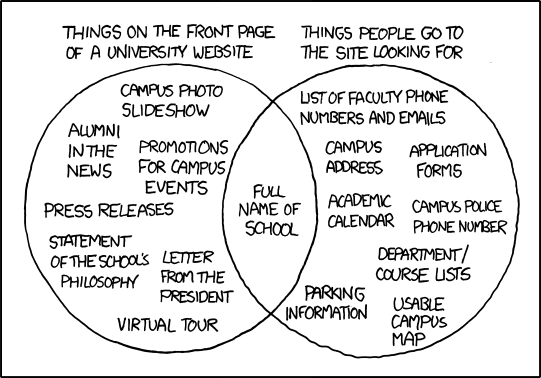Attendees
Frank Donnelly, Stephen Francoeur, Ellen Kaufman, Rita Ormsby, Ryan Phillips, Linda Rath
How Much Information
We watched this video featuring Martin Hilbert, a researcher at USC’s Annenberg School for Communication and Journalism who recently co-published a paper in Science that estimated how much information we can store and compute. We also listed to an interview with Hilbert that was done on the journal’s podcast. The overwhelming scale of information available can be seen in this press release’s overview of the paper’s findings:
Looking at both digital memory and analog devices, the researchers calculate that humankind is able to store at least 295 exabytes of information. (Yes, that’s a number with 20 zeroes in it.)
Put another way, if a single star is a bit of information, that’s a galaxy of information for every person in the world. But it’s still less than 1 percent of the information stored in all the DNA molecules of a human being.
2002 could be considered the beginning of the digital age, the first year worldwide digital storage capacity overtook total analog capacity. As of 2007, almost 94 percent of our memory is in digital form.
In 2007, humankind successfully sent 1.9 zettabytes of information through broadcast technology such as televisions and GPS. That’s equivalent to every person in the world reading 174 newspapers every day.
On two-way communications technology, such as cell phones, humankind shared 65 exabytes of information through telecommunications in 2007, the equivalent of every person in the world communicating the contents of six newspapers every day.
In 2007, all the general-purpose computers in the world computed 6.4 x 10^18 instructions per second, in the same general order of magnitude as the number of nerve impulses executed by a single human brain. Doing these instructions by hand would take 2,200 times the period since the Big Bang.
From 1986 to 2007, the period of time examined in the study, worldwide computing capacity grew 58 percent a year, 10 times faster than the United States’ gross domestic product.
Telecommunications grew 28 percent annually and storage capacity grew 23 percent a year.
We also took a quick look back at a well known study from 2003 by Peter Lyman and Hal Varian about how much information existed.
Art Project
We took a spin through Art Project, a new service from Google that uses its Street View technology to map out the interiors of art museums around the world (such as the Frick Collection) and that lets you zoom in incredibly close to art in those institutions (see, for example, Rembrandt’s “The Nightwatch” at the Rijksmuseum).
We talked about who owns copyright for works of art held in museum after reading this copyright notice on the FAQ page for the Art Project website:
Why are some areas or specific paintings in the museum Street View imagery blurred?
Some of the paintings and features captured with Street View were required to be blurred by the museums for reasons pertaining to copyrights.
Ebooks
We talked briefly about patron-driven acquisition of ebooks and about how services like Portico will allow us to access ebook content that we’ve licensed even if the provider goes out of business. Since Mike Waldman was unable to attend today’s Tech Sharecase, we agreed to hold off until a later meeting any discussion of the criteria that a librarian might use when deciding which format to purchase a specific book: ebook vs. hardcover vs. paper.
We took a look at how book records in the catalog for Johns Hopkins University connect to various web services that enhance the information normally available in a record: a search box for Amazon’s Search Inside the Book service, links to ebook versions that are freely available at Hathi Trust, Google Books, and much more. These enhanced records are powered by a piece of open source middleware called Umlaut.
A second edition of Planet Hong Kong: Popular Cinema and the Art of Entertainment was also a subject of discussion, as the author, David Bordwell, was selling the PDF directly after the university press that published the first edition let the book go out of print.
SSRN
We poked around in SSRN, a repository of papers in the social sciences, to see how it ranked Baruch among other business schools whose faculty have contributed oft-downloaded papers.





